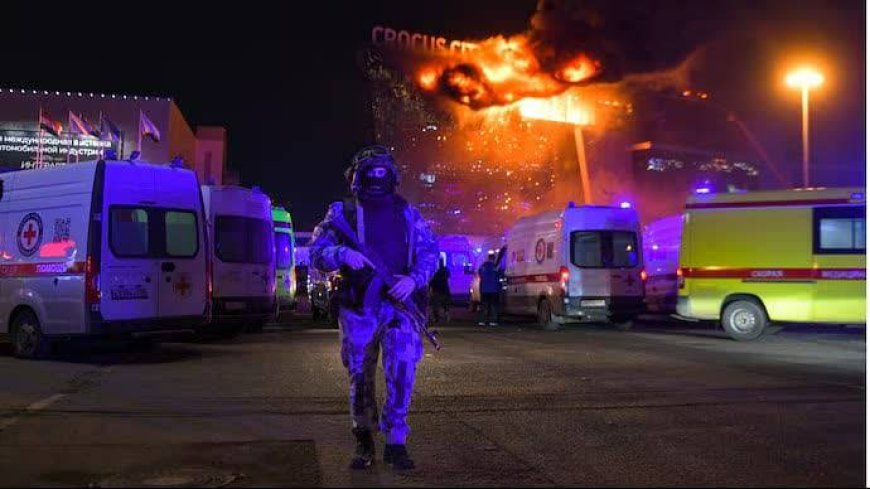Beneath the Surface: Who Really Is Behind the Moscow Terrorist Attack?

On March 22nd, Russia witnessed its deadliest terrorist attack in the past two decades, taking place in Moscow's Crocus City Hall. The tragic event, reminiscent of the Beslan school siege, was carefully planned and involved the use of previously hidden weapons, according to the Russian Federal Security Service (FSB). Following this horrific act of terrorism, similar to others that have afflicted many countries worldwide, a crucial question arises: Who masterminded this atrocity? ISIS immediately claimed responsibility for the attack. However, varying assessments within and beyond Russia cast a dark shadow over this scenario. However, some observers argue that ISIS harbored ample motives for the assault. There are several important elements that reinforce this assertion:
i. Russia is considered one of the primary adversaries of ISIS due to its active involvement in the global campaign against terrorism. This involvement notably includes military operations in Syria and fostering close relationships with ISIS' arch-rival in Afghanistan, the Taliban.
ii. Russia's complex internal landscape, marked by longstanding tensions in its southern regions, has emerged as a fertile ground for the spread of radical ideologies. Exploiting the underlying grievances within local communities, ISIS seeks to present itself as a champion of Muslim citizens.
In accordance with the aforementioned rationales, the terrorist organization deliberately directed its attacks against Russia with the primary objectives of appealing to Russian Muslims and, significantly, enhancing its waning global stature. Conversely, an opposing viewpoint contends that the ISIS of today is a far cry from its former self—an organization vanquished in Syria and Iraq that morphed into an entity devoid of its original ideological zeal. The present incarnation of ISIS, it is believed, operates as a mercenary force, funded by a mix of state and non-state players, to carry out nefarious crimes solely for financial gains.
The confession of a captured terrorist from the Crocus City Hall assault, who admitted to receiving a substantial sum for the mission, lends support to this particular argument. In this regard, former US intelligence official Scott Ritter's remarks, cited by the Sputnik news agency, raised concerns regarding Washington's possible role in Friday's assault in Moscow. Ritter's assertion underscores the incongruity of the attackers' behavior with typical ISIS modus operandi, suggesting a more intricate geopolitical ploy at play, possibly orchestrated by foreign countries to serve their agendas.
The situation becomes even more suspicious when considering that US officials warned Moscow about an imminent threat. Additionally, the appearance of the assailant's image a day before the attack adds to the eerie nature of the events, highlighting the need for further investigation. A closer examination of the geopolitical landscape reveals a possible nexus implicating the United States and Western powers in collaborating with ISIS operatives to orchestrate the tragic assault in Moscow.
As a matter of fact, Putin's recent electoral victory in the midst of the ongoing conflict in Ukraine has stoked apprehensions in Western corridors. The prospect of an emboldened Putin intensifying military actions, potentially leading to Ukraine's defeat, poses a strategic challenge to Western interests, especially against the backdrop of impending US presidential elections scheduled for November. Hence, a concerted and systematic campaign to undermine Russia's security, sow discord internally, and perpetuate conflict in Ukraine appears as a plausible motive for the assault in Moscow.
Following the terrorist attack at Moscow's Crocus City Hall, where almost 140 civilians have lost their lives, the complexities of this carnage require careful examination. As the world tries to make sense of the aftermath of this tragic incident, there are lingering questions about who is truly responsible for this atrocity. While ISIS has claimed responsibility, suspicions of a more complex geopolitical scheme have arisen. The various motives at play, from destabilizing Russia’s Muslim-populated republics to serving foreign interests, highlight the intricate nature of this tragedy and the uncertainty surrounding its origins. As the Russian government pursues determined justice for the victims, the pursuit of truth in the face of such evil remains essential.













































